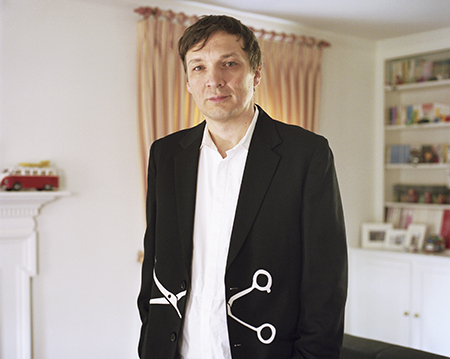Having organized most of the world’s information, Google is now looking to push the boundaries in as many industries as possible. Which may explain why Google-owned Motorola has hired Dr. Ivan Poupyrev, who’s best known as the research scientist who made plants sing.
Last year, Fast Company magazine named Poupyrev one of the 100 Most Creative People in Business, and he is now part of Motorola’s advanced technology and products unit. Headed by ex-DARPA director Regina Dugan, the department created the customizable Moto X, and it’s now working on such adventurous projects as an electronic tattoo and a battery-powered, signal-transmitting swallowable pill, either of which can be used for user authentication.
Poupyrev was a key member of the team at a Disney/Carnegie Mellon lab that developed Touché, which makes any object or living thing touch- and gesture-capable through capacitive sensing over a broad spectrum of frequencies, delivering a broad gestural vocabulary beyond what is possible with today’s touchscreens.
What will he do?
Connecting a single wire to a plant, for instance, Touché and a music-generation program can induce a plant to “sing” when touched. (Since the technology originated in a Disney lab, we trust the plant will practice all the great Disney tunes.) But plants shouldn’t have all the glory — the system can also give multigestural recognition to, say, the lowly doorknob, a basic table — even a bowl of water or the human body. Potentially, this could eliminate touchscreens entirely, and bodily gestures could become the interface.
The question, not yet answered, is what does Google/Motorola want this creative scientist to do?
Ramon Llamas, a research analyst at industry research firm IDC, pointed out to VentureBeat that “the smartphone has kind of plateaued in terms of innovation, and the next frontier is to work on things outside the device,” in which you “think of the smartphone as being the remote control of your life.”
A smartphone that can be dialed by gestures on any Touché -enabled surface, controls a Touché -enabled device, or receives signals from any Touché -enabled person? Suddenly, Google’s self-driving cars seem old hat.
VentureBeat's mission is to be a digital town square for technical decision-makers to gain knowledge about transformative enterprise technology and transact. Learn More

